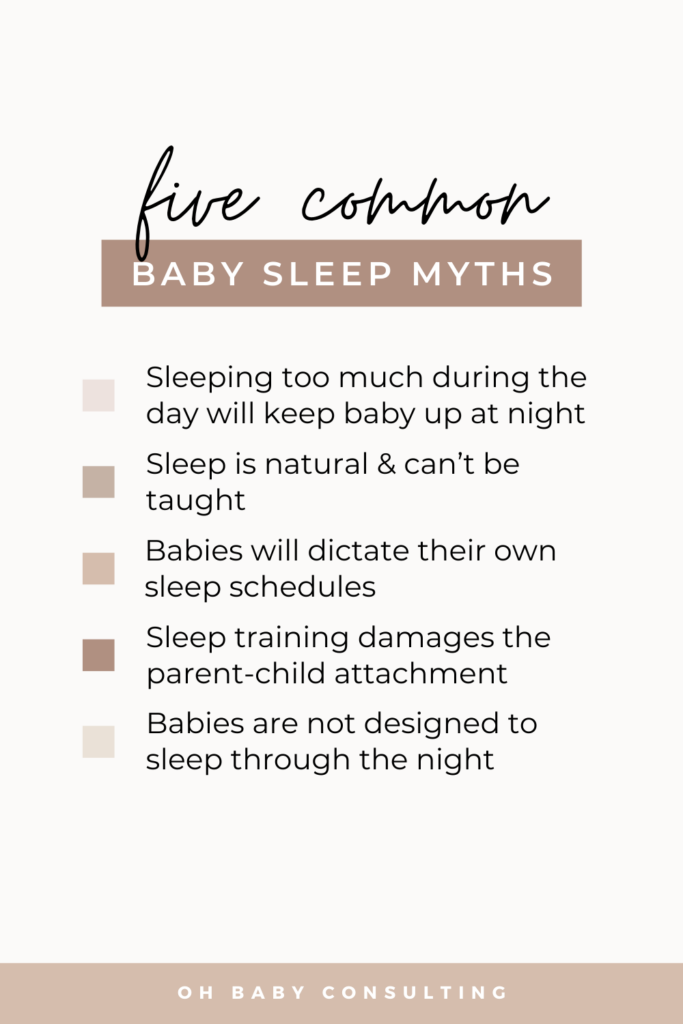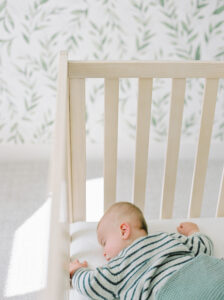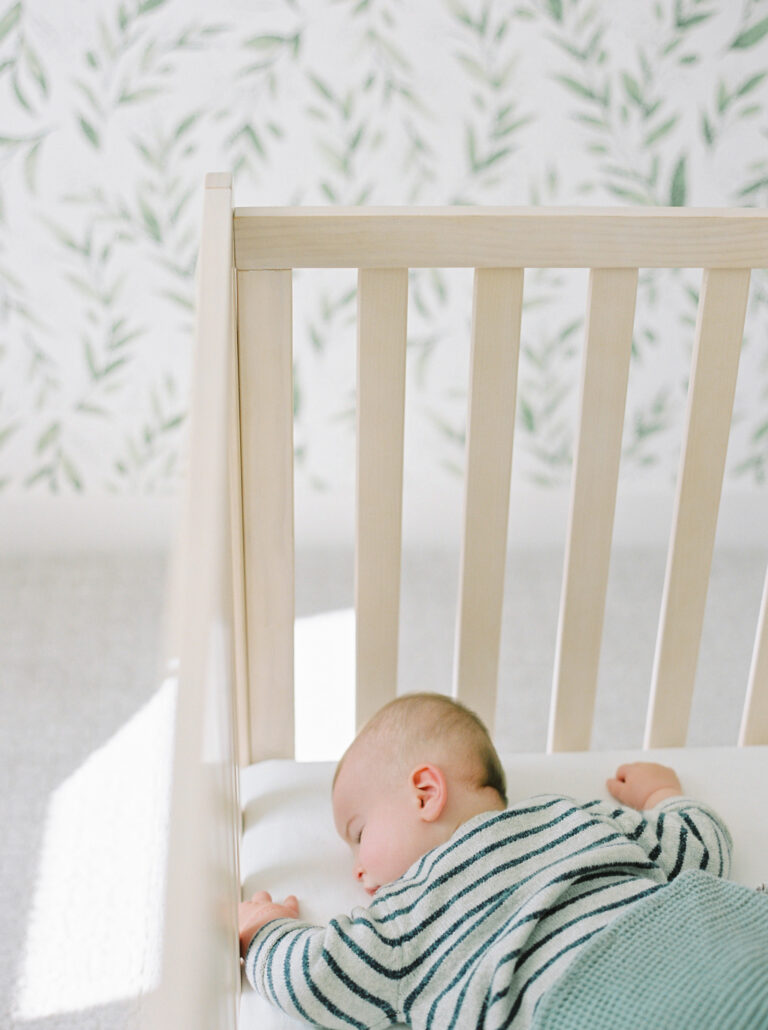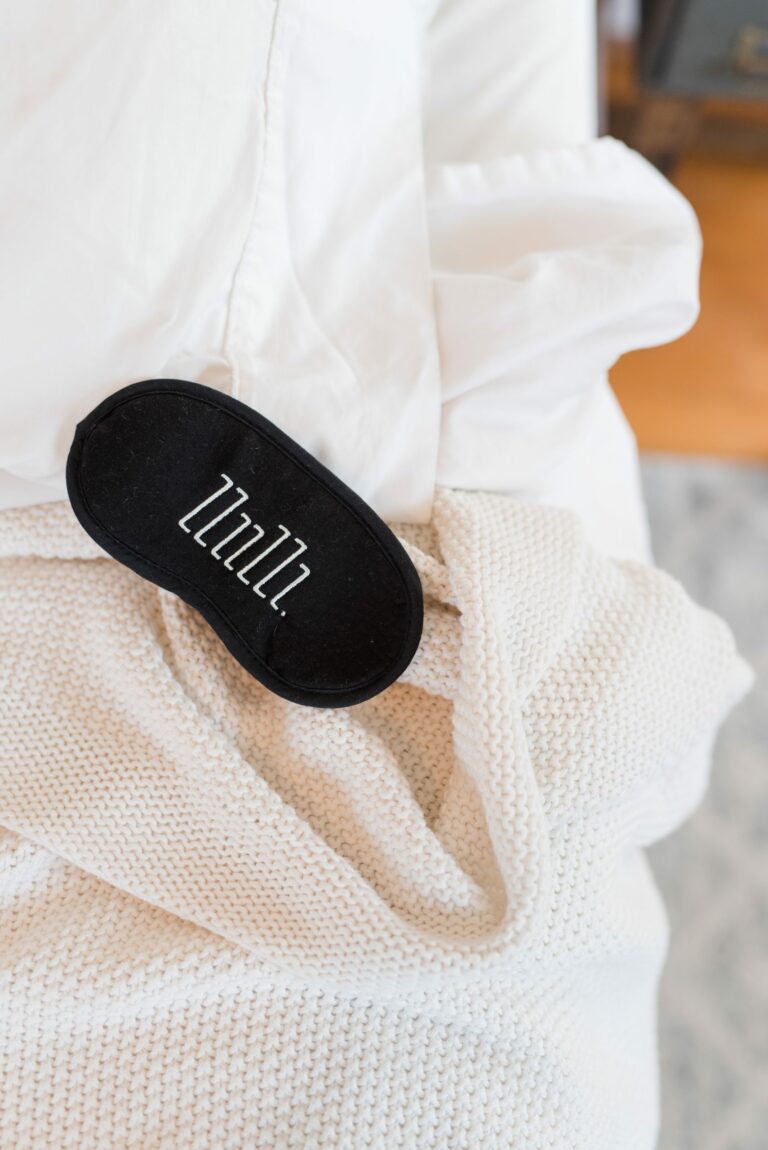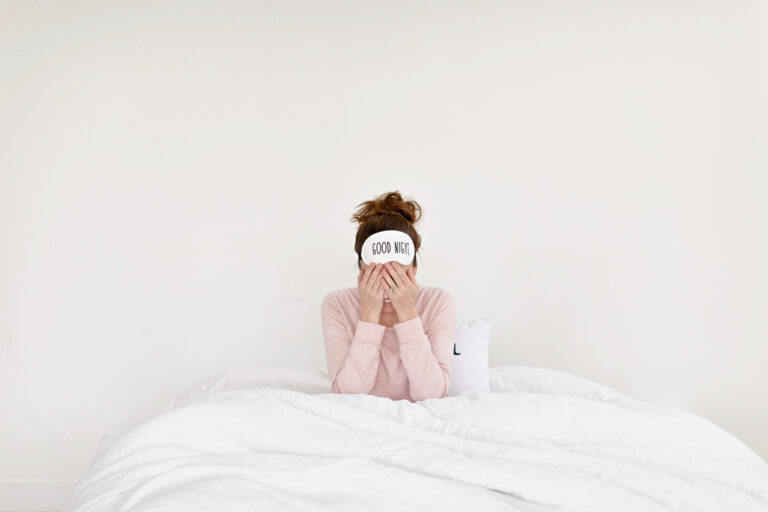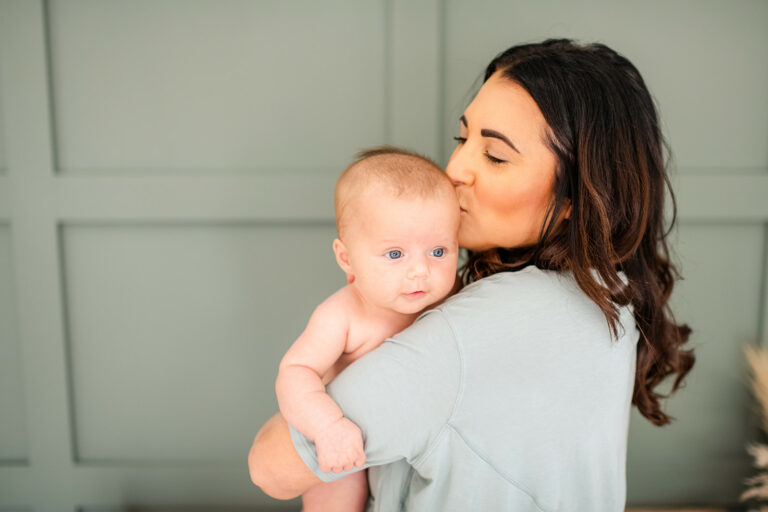The magnitude of and the ease of access to information on parenting is a double-edge sword. There is so much to learn…and at the same time, there is just so much – much of it contradicting.
Books, blogs, and Facebook mom groups can be a wonderful source of knowledge, but can also be filled with #fakenews and misinformation.
While I do not claim to be an expert on everything, I do consider myself well versed in the baby & toddler sleep world, so I want to dispel some common myths that I hear quite often.
Myth #1: Sleeping too much during the day will keep baby up at night
This is highly unlikely, except in very extreme cases. Unless your child is sleeping for much longer than is age-appropriate, you probably don’t need to focus too much on limiting their daytime naps.
In actuality, overtiredness can work against your efforts to get your child sleeping better overnight. While it is reasonable to asssume that exhausting your child is the key to a better night of sleep, it’s actually just the opposite. The reason we refer to it as being “overtired” is because baby has missed the “tired” phase and their bodies start to kick back into gear which keeps them from falling and staying asleep. A baby who has gotten a decent amount of sleep during the day will be less likely to miss this sleep window and their body will not emit the stimulating hormones that are produced when we are overtired.
I am so passionate about daytime sleep and its critical importance on the effects of nighttime sleep, that I put together a Nap Guide with information on nap schedules and daytime sleep needs from birth through age five. If naps are your enemy, start there!
Myth #2: Sleep is natural & can’t be taught
Sleeping is natural, absolutely. We are all born with the need to sleep. But what does not come so naturally is how we sleep. That is based on habits & experiences.
The reality is that a child who is labeled a “bad sleeper” isn’t in less need of sleep or more prone to waking up throughout the night.
I’ll say it louder for the people in the back: Your “bad sleeper” is not waking up any more often than your sister’s “great sleeper”.
Babies labeled as “bad sleepers” have just learned to depend on outside assistance to get back to sleep when they wake. Once your child is able to be in charge of their own sleep and can put themselves to sleep independently, they start stringing together sleep cycles effortlessly which is the secret to “sleeping through the night”.
Myth #3: Babies will dictate their own sleep schedules
Many new parents just assume that babies will sleep when they’re tired, but unfortunately that’s not often the case. Babies need extensive care and help in their development, and their sleep cycles are unbelievably erratic if left unregulated. Babies thrive when on a sleeping + feeding schedule and that predictability can be life changing for parents. Putting your child on a schedule does not mean that you have to ignore their cues, it just means that you shouldn’t rely exclusively on them as they can be misleading.
Putting your child on an age-appropriate schedule important in helping them develop a healthy sleep-wake rhythm, ensure full feedings, and get the sleep their little bodies need.
Myth #4: Sleep training is stressful for baby and can affect the parent-child attachment
This claim angers me and I can go on and on about how false this is.
In fact, I do share much more in the following posts:
Does Sleep Training Cause Stress?
Sleep Training & Attachment
I have spent my life studying and working in the fields of child development and infant mental health and promoting a positive, healthy relationship between child and caregiver. I would never knowingly recommend anything that has the potential to harm this bond.
But this isn’t just my opinion. The American Academy of Pediatrics (AAP) published a study in 2016 showing that behavioral intervention (aka “sleep training”) “provide(s) significant sleep benefits…yet convey(s) no adverse stress responses or long-term effects on parent-child attachment or child emotions and behavior.” Not a whole lot of grey area there!
In fact, I think if you asked any of the well-rested parents I’ve worked with, they would tell you that their relationship with their child is that much better because they are no longer sleep deprived. When everyone is sleeping well, we have more patience, can be more present in our relationships, and have a happier disposition compared to when we are exhausted.
You can read more about current sleep training research, here.
Myth #5: Babies are not designed to sleep through the night
Trusting your child’s newborn physiology to dictate their sleep schedule, their eating habits, their behavior, or just about any other aspect of their upbringing is unfair to the immaturity of human babies.
Is your toddler designed to eat a pound of gummy bears in one sitting? Definitely not. Will they if you don’t intervene? 100% yes.
Our children need our maturity, expertise, and authority to guide them through their early years (and truthfully for decades after that too. I know I call my parents at least once a week with an issue I need support with!)
Just like some babies take to breastfeeding more easily or are more adventurous when starting solids, some babies are naturally better sleepers. However, there are still plenty of babies who need support in areas like breastfeeding, starting solids, physical development, and – yes – even sleep!
While newborns will of course need frequent overnight feeds in the beginning, once they are big enough, what healthy, growing babies need most is consolidated sleep.
There are obviously plenty more myths and misconceptions surrounding babies and their sleep habits, but these are some of the most common ones I hear as well as some of the most important ones to get the facts straight on.
Remember, there are endless posts on social media and websites that portray themselves as factual, but there’s nothing – literally nothing – stopping them from making that claim, regardless of their accuracy or basis in scientific evidence. It can be hard to sift through reputable sources, which is why I’m here.
I hope you learned something new and maybe can help debunk some outrageous claims the next time you hear them being discussed.
